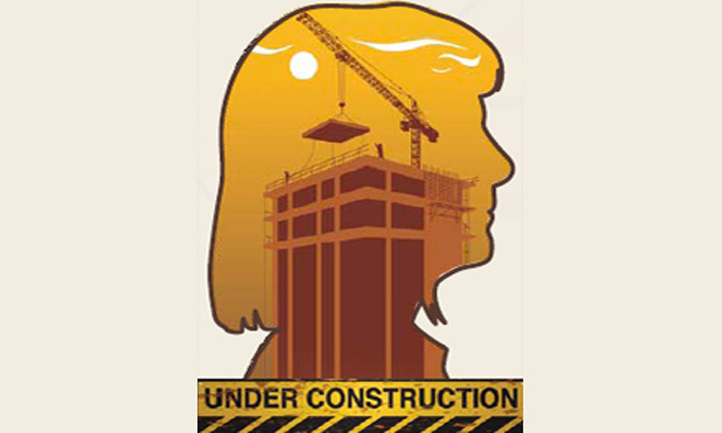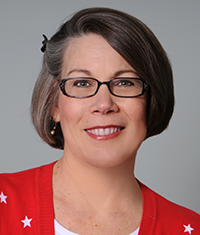Death-Induced Midlife Identity Crisis
Author: Betsy Beard
Who are you now?
Life was simple when I was seven years old and people asked me what I wanted to be when I grew up. Of course I knew! The answer was easy: a princess or a movie star. From my egocentric and immature perspective, the choices were limitless because all I needed to do was magically choose a career path. Reality was no obstacle. There was no fear that my selection was impractical or impossible. The event was far in the future anyway and there was plenty of time to tend to the details.

At eighteen my answer was more hesitant. Who did I want to be? How could I get there? Did I possess the necessary time, talent, and treasure? Life was uncertain, but like all the other high school seniors I had to come up with an answer before June. I had little knowledge and less experience. Nevertheless, I made a choice, attended college, settled into a job, married, and had children. Roles were precisely defined. I cook the dinner; you take out the trash. I bathe the children; you read them a story. I have this job; you have that. Life proceeded in a more or less sensible, stable direction. I was, after all, a grownup.
And then the unthinkable happened. Our predictable, established life collapsed under the impact of the death of our son. Nothing made any sense. Nothing worked the way it should. Nothing brought immediate comfort or meaning or relief. I had the strange sensation that I was floating above myself and observing the activity that played itself out around our family. And then came the crashing feeling of falling helplessly, waiting for the jarring thud that would signify my arrival at rock bottom. Food tasted like cardboard. Relationships faltered.
My job seemed meaningless, inconsequential, and trivial in the extreme. Confusion and despair were my persistent companions. I questioned my personhood. I questioned my role in life. I wondered who I was and what I was supposed to do. I was already a grownup and didn’t know what I wanted to be anymore. I just knew that I didn’t want to be me.
I had no answers to the questions that swirled in my head. My faith took an extended vacation. My life was shattered and could not (would not) ever be the same. My worldview crumbled.
Remember the images of September 11, 2001? Billows of smoke. Giant piles of rubble. Girders poking out in all directions. Blocks of concrete, tangles of wires, paper scattered like confetti, shards of broken glass. That’s the kind of destruction I felt, right down to the panicked people running as fast as they could to get away.
The dust and debris were suffocating. For a long time I simply stared at the destruction, uncomprehending. My new job, although I didn’t realize it at the time of Brad’s death, would be to thoroughly sift through every component and building block of my life, picking and choosing which pieces would be used to make meaning of my “new” life. It would have been the worst folly to simply brush myself off and assume that I could carry on with business as usual in the middle of the wreckage. I had just witnessed complete destruction. I needed time to pick through the wreckage, sifting and discarding much of what I had thought was important.
The process seemed to take all my attention, all my time, all my energy. But until I examined the broken components of my life, until I determined what was worth salvaging, I could not begin to rebuild.
Much of the sifting required internal contemplation. Lonely work. Time-consuming work. Impatient friends departed. Other friends simply stood at a distance and watched the messy remodeling. A few amazing people, reminiscent of the brave firefighters and first responders of 9/11, actually moved toward my personal ground zero to bring help.
Among them were my new friends at TAPS; people who knew firsthand the difficulty of the rebuilding process. I was also fortunate to have the help of a wise grief counselor, who understood the process, asked the important questions, and afforded me the time it took to examine each piece of rubble and find some answers.
The past years have been a time of groping blindly through the ashes and dust. Stumbling and sometimes falling. Using trial and error to try to find my way. Feeling uncertain and awkward. Struggling with disorder and confusion as I participated in my own reconstruction and reinvention.
The monumental task of reevaluating priorities, realigning allegiances, renegotiating principles, and forging a new identity still is not complete after four years. To be sure, some of the foundations for my new life are in place. Even though I am using some of the previous building materials, however, the structure is different. A profound and fundamental rethinking has touched every area of my life.
Those who have been the most help are people who continued to simply be present in the disorder and confusion and mayhem of change. They didn’t push. They didn’t pull. They didn’t theorize, or sermonize, or demonize. They simply accepted my condition and allowed me the time to adjust to the awful horror of burying my child. They gave me time to acknowledge the loss and think through every aspect of the change brought about by my son’s death. They patiently allowed me to make meaning of the random chaos.
What do I want to be when I grow up? I’m figuring it out. What do you want to be when you grow up? It may take a great deal of your time and energy to find out. Be patient with yourself. Allow yourself to ask all the questions you can think of. Try out different activities and attitudes to see if they fit.
If you become discouraged in your efforts to contemplate your future and figure out who you are now, consider getting additional support from TAPS or the Department of Veterans Affairs Readjustment Counseling Service. Call TAPS at 800-959-TAPS to find out about grief counseling, peer mentors, National and Regional Military Survivor Seminars, and the TAPS Online Community.

 By Betsy Beard, Surviving mom of U.S. Army SPC Bradley S. Beard: Betsy Beard served as the editor of TAPS Magazine for seven years in addition to volunteering as a peer mentor, care group facilitator, and national workshop presenter. In that time she authored a number of TAPS publications and Quick Series Guides, as well as the award-winning children's book, Klinger: A Story of Honor and Hope and many articles for TAPS Magazine. Betsy has been published in Living with Loss publications and various newspapers. She currently is a freelance book editor and serves as the awards director of Military Writers Society of America. She lives in North Carolina with her husband, Randy.
By Betsy Beard, Surviving mom of U.S. Army SPC Bradley S. Beard: Betsy Beard served as the editor of TAPS Magazine for seven years in addition to volunteering as a peer mentor, care group facilitator, and national workshop presenter. In that time she authored a number of TAPS publications and Quick Series Guides, as well as the award-winning children's book, Klinger: A Story of Honor and Hope and many articles for TAPS Magazine. Betsy has been published in Living with Loss publications and various newspapers. She currently is a freelance book editor and serves as the awards director of Military Writers Society of America. She lives in North Carolina with her husband, Randy.